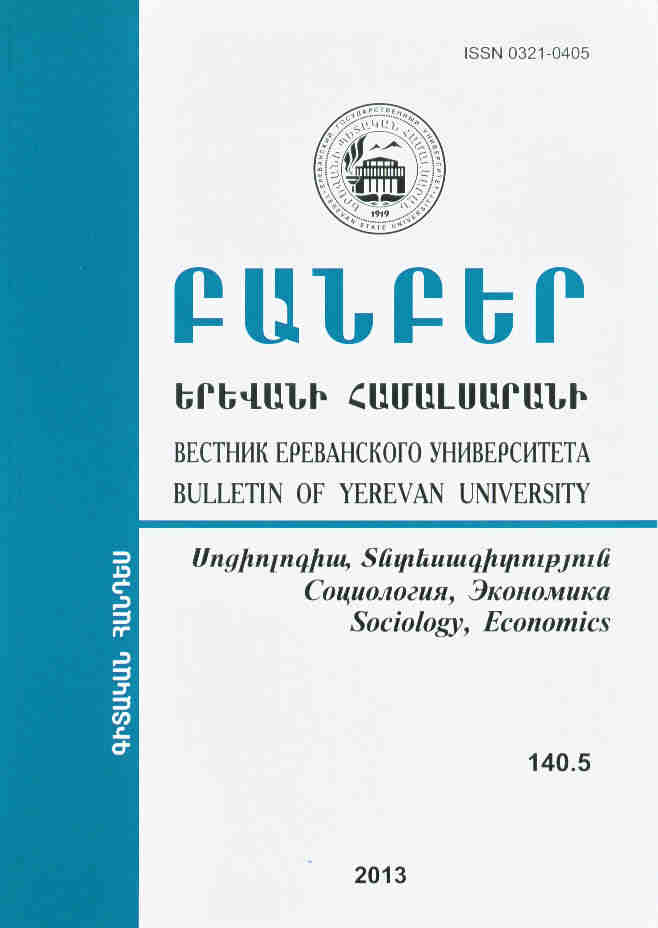Methodological Approaches to Study of Social Characteristics of the Virtual Network Communities
DOI:
https://doi.org/10.46991/BYSU:F/2013.4.2.013Abstract
The emergence of the Internet as a new virtual space for the functioning of the network communities raises the serious problem for social scientists to choose a suitable methodology for the study of the social characteristics of the newly appeared social constructs. The major controversy discussed by the representatives of the traditional approach is that the technological and the virtual nature of these social objects constrained their interpretation within the traditional paradigms. In order to deal with these controversies the current researches and more frequently applied methodologies were brought together and examined thoroughly in this article. The effectiveness of the ethnomethodological, phenomenological, network and social capital approaches were discussed in relation to the study of the social characteristics of the virtual network communities. As a result of this analysis, it was noticed that while using each of these methodologies the researchers have been focusing their attention on one or two components of the virtual communities in expense of ignoring the interplays between all of the components. To overcome this shortcoming we suggested observing virtual network communities as socio-technical systems, which are composed of technological, structural, normative, purposive, socio -psychological, resource and socio cultural subsystems. The sociotechnical system approach appears as a mixed theoretical framework, as it allows integrating network, social capital and system approaches to explain the regularities of developing and functioning of newly appeared social objects.
Downloads
Published
Issue
Section
License
Copyright (c) 2013 Bulletin of Yerevan University

This work is licensed under a Creative Commons Attribution-NonCommercial 4.0 International License.





